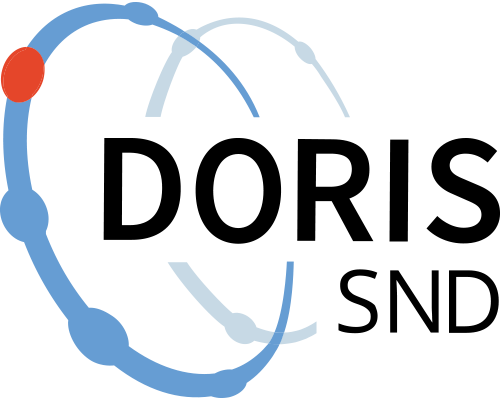SNAC – Swedish National study on Aging and Care
Den nationella äldrestudien SNAC – The Swedish National Study on Aging and Care – startade 2001 på initiativ av regeringen för att ge svar på hur framtida behov av vård och behov kommer att se ut och hur de bäst skall tillgodoses. SNAC-studien kombinerar ett befolkningsperspektiv inriktat på att beskriva åldrandet och de äldres livssituation med ett vårdsystemperspektiv som beskriver och analyserar vård- och omsorgssystemets funktion i förhållande till de äldres behov.
Den grundläggande idén bakom SNAC är att under en längre tid (30 år eller mer) göra en områdesvis individbaserad insamling av uppgifter, som dels beskriver åldrandet, hälsan och uppkomsten av omsorgsbehoven ur social, medicinsk och psykologisk synvinkel, dels registrerar vilka insatser den enskilde erhåller från kommunernas äldreomsorg och landstingens hälso- och sjukvård. Även uppgifter som belyser vilka insatser anhöriga och frivilligorganisationer gör samlas in. Uppgifterna läggs in i en longitudinell databas. Syftet med denna är att göra det möjligt att följa individerna och vårdinsatserna i området över tid för att kunna studera hur vård- och omsorgsbehoven utvecklas, hur väl de täcks och vilket resultat insatserna ger ur ett helhetsperspektiv.
SNAC innefattar fyra deltagande områden: SNAC-Blekinge, SNAC-Kungsholmen, SNAC-Nordanstig och SNAC-Skåne (GÅS). Vid samtliga fyra områden finns ett forskningscentrum som bedriver dels en befolkningsdel och dels en vårdsystemsdel. Under 'Relaterade studier' finns specifik beskrivning och material för respektive delstudie inom SNAC.
Befolkningsdel:
Den longitudinella datainsamlingen innebär att ett urval av den äldre befolkningen följs upp med hjälp av undersökningar, intervjuer, enkäter e.t.c. Insamlingen avser bland annat uppgifter om hälsa, sjukdom, funktionsförmåga och sociala förhållanden. Denna information kompletteras med uppgifter från olika register. De fyra områdena arbetar med en gemensam studiedesign. Inledningsvis genomfördes en s.k. baslinje-undersökning avseende ett urval personer boende i respektive område och i åldrarna 60, 66, 72, 78, 81, 84, 87, 90, 93 och 96 år. Dessa personer följs nu regelbundet – de yngre vart sjätte år och de äldre vart tredje. Vart sjätte år läggs en ny kohort 60-åringar till studie- populationen.
Baslinjeundersökningen inom SNAC-studiens befolkningsdel sattes igång i samtliga områden i mars 2001 och avslutades i Blekinge och Nordanstig år 2003 samt i Skåne och Stockholm/Kungsholmen år 2004. Sammanlagt undersöktes över 8 000 personer i de fyra områdena.
Vårdsystemdel:
Syftet med datainsamlingen i vårdsystemdelen är att kontinuerligt följa de vård- och omsorgsinsatser, som den äldre befolkningen erhåller, såväl akuta som långvariga, samt att därvid också registrera olika faktorer, som har betydelse för tilldelningen av insatserna. Registreringen i vårdsystemdelen avser i princip alla förändringar i insatsen av långvarig vård och omsorg för de personer som bor inom det aktuella området och som är 65 år och äldre.
Syfte:
Övergripande syfte med SNAC-studien är att, genom uppbyggnad av longitudinella områdesdatabaser inom äldreområdet, skapa förutsättningar för forskning och analys av olika frågor kring åldrandet, uppkomsten av vårdbehoven hos de äldre och hur dessa behov möts på bästa sätt.
Gå till källa för data
Öppnas i en ny tabbhttps://snac.nu
Dokumentationsfiler
Dokumentationsfiler
Citering och åtkomst
Citering och åtkomst
Tillgänglighetsnivå:
Skapare/primärforskare:
- Sölve Elmståhl - Lunds universitet - Institutionen för kliniska vetenskaper Medicin i Malmö. Avdelningen för geriatrik
- Laura Fratiglioni - Karolinska Institutet - Institutionen för neurobiologi, vårdvetenskap och samhälle (NVS), Aging Research Center (ARC)
- Johan Sanmartin Berglund - Blekinge tekniska högskola - Institutionen för hälsa
- Mårten Lagergren - Stiftelsen Stockholms läns Äldrecentrum
- Anders Wimo - Karolinska Institutet - Institutionen för neurobiologi, vårdvetenskap och samhälle
Forskningshuvudman:
Data innehåller personuppgifter:
Nej
Citering:
Metod och utfall
Metod och utfall
Geografisk täckning
Geografisk täckning
Administrativ information
Administrativ information
Ämnesområde och nyckelord
Ämnesområde och nyckelord
Relationer
Relationer
Metadata
Metadata
Version 1
